The best gauge for a metal roof truly depends on your unique needs and preferences. Thicker gauges like 22 and 24 offer enhanced durability, making them perfect for withstanding harsh weather conditions. On the other hand, thinner gauges like 26 and 29 are more budget-friendly, offering a cost-effective solution for those in milder climates. In this article, we’ll guide you through the options, helping you discover the ideal gauge for your metal roof.
Understanding Metal Roof Gauges
Metal roofing gauges measure the thickness of metal roofing panels, crucial for determining the roof’s performance and durability. A higher gauge number means a thinner panel, like a 29-gauge panel being thinner than a 22-gauge panel. This can be confusing, so understanding how these numbers relate to thickness and performance, including the metal roof gauge, is essential.
How Gauge Affects Metal Panels
Choosing the right gauge affects several factors, including:
- Durability and Longevity: Thicker gauges offer increased durability and are less prone to damage from impacts and severe weather conditions.
- Weight and Structural Support: Heavier panels may require additional support during installation, impacting the overall cost and complexity.
- Cost: Thicker panels typically come at a higher cost due to the increased material used and the need for more robust installation methods.
- Weather Resistance: Thicker gauges provide better protection against harsh weather, while thinner gauges are suitable for milder climates.
- Application Suitability: Different roofing styles, like standing seam or corrugated, may require specific gauges to optimize performance.
Common Metal Roofing Gauges
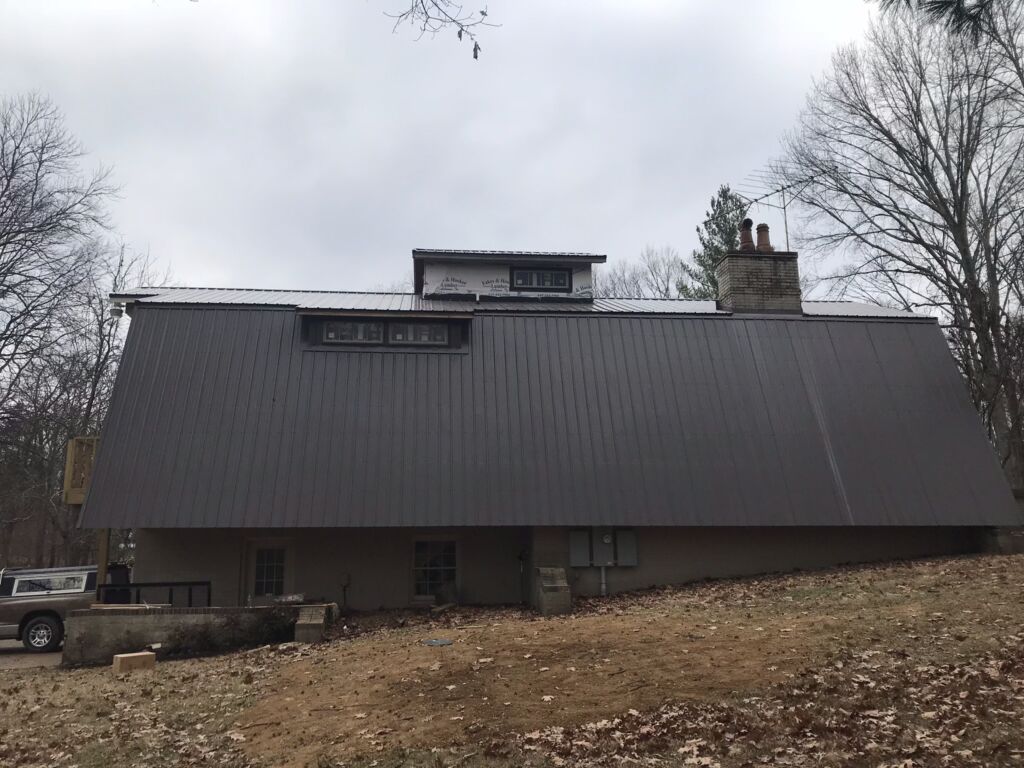
Metal roofing comes in various metal roofing gauge sizes, with 22, 24, 26, and 29 being the most commonly used. The 22-gauge is the thickest, providing superior durability and resistance against harsh weather, while the 29-gauge is the thinnest, offering cost-effectiveness for less demanding applications. Each gauge has its own set of advantages and ideal uses.
Thicker Metal Options: 22 and 24 Gauge
When considering thicker metal roofing options, both 22-gauge and 24-gauge panels offer enhanced durability. The 22-gauge measures about 0.031 inches thick, providing superior strength for severe weather conditions. Meanwhile, the 24-gauge, at approximately 0.024 inches thick, balances durability with easier installation, making it a versatile choice.
Pros of Thicker Gauges:
- Exceptional durability and longevity, ideal for withstanding severe weather conditions
- Superior resistance to damage from impacts, such as hailstorms and high winds
- Reduced maintenance needs over time, leading to potential long-term savings
Cons of Thicker Gauges:
- Higher initial cost compared to thinner gauges due to increased material usage
- Increased weight may require additional structural support and more complex installation
- Can be more costly and labor-intensive to install
Both 22-gauge and 24-gauge metal roofing panels provide excellent protection against the elements, making them ideal choices for homeowners seeking reliable and long-lasting roofing solutions. While 22-gauge offers maximum strength, 24-gauge provides a balanced approach, combining durability with ease of installation.
Thinner Metal Options: 26 and 29 Gauge
Thinner metal roofing options, such as 26-gauge and 29-gauge panels, are popular for their cost-effectiveness and ease of installation. The 26-gauge metal roofing, measuring about 0.0188 inches thick, offers a practical choice for those seeking reliable protection without the expense of thicker panels. Meanwhile, 29-gauge metal roofing, being the lightest option at around 0.0142 inches thick, is favored for its affordability and adequate performance in mild climates.
Pros of Thinner Gauges:
- Budget-friendly and economical, making them an attractive option for cost-conscious homeowners
- Easy to handle and install due to their lighter weight, reducing labor costs and time on the job
- Suitable for mild climates and less demanding residential applications, providing adequate protection
Cons of Thinner Gauges:
- Less durable compared to thicker gauges, potentially requiring more frequent maintenance
- May not be ideal for regions with extreme weather conditions or heavy snow loads
- Could necessitate more regular upkeep in challenging weather conditions to maintain their integrity
Thinner metal panels offer a balanced approach for many residential applications, especially in areas with milder climates. While they may require more maintenance in harsh weather, their affordability and ease of installation make them a viable option for many homeowners.
Choosing the Right Gauge for Your Roof Type
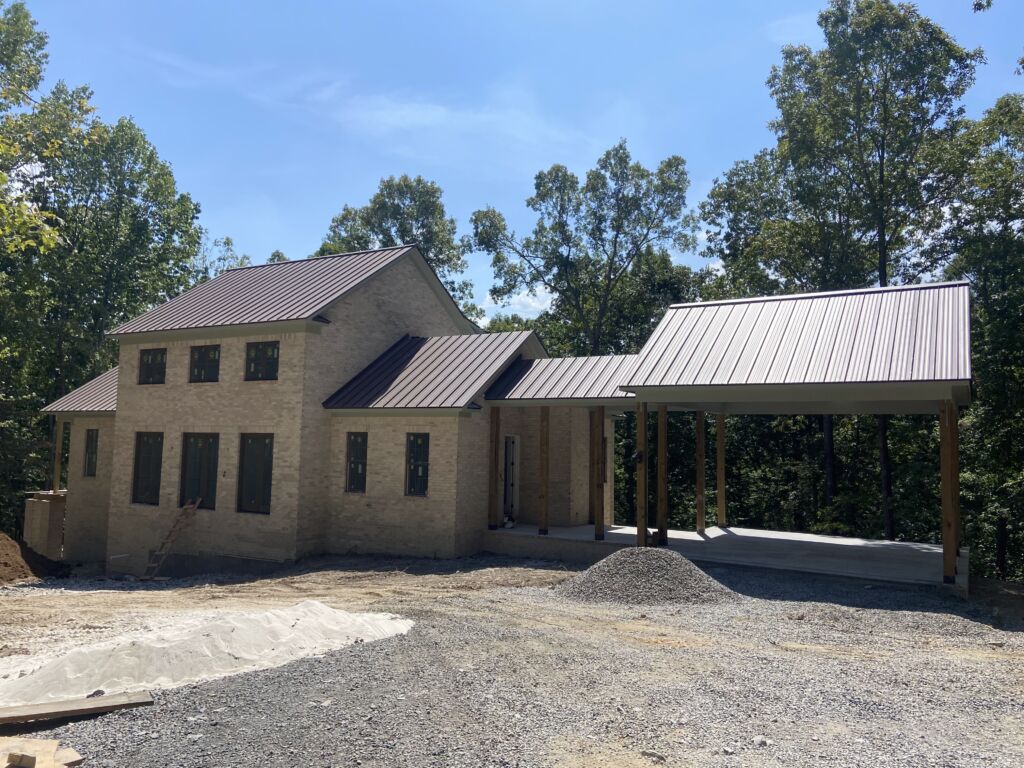
Choosing the correct gauge for your roof type ensures optimal performance and longevity. 24-gauge metal roofing is typically recommended for residential applications due to its strength and balanced cost-effectiveness. However, the choice of gauge can vary depending on the specific type of roof and its intended use.
Standing Seam Metal Roof
Standing seam metal roofs are known for their sleek appearance and excellent weather resistance. What makes standing seam roofing unique is that the fasteners are concealed under a raised seam to create a clean appearance without visible screws or nails. For these types of roofs, 24-gauge metal roofing strikes a balance between weight and durability, making it easier to install while still providing good resistance to damage.
The aesthetics and performance of standing seam metal roofs are significantly enhanced by choosing the right gauge. Thicker gauges, such as 24-gauge, enhance the roof’s ability to withstand environmental factors, ensuring long-term reliability. This makes 24-gauge an industry standard for standing seam metal roofing installations.
Corrugated Metal Roofing
Corrugated metal roofing often employs lighter gauges like 26 or 29 due to their flexibility and cost-effectiveness. Corrugated roofs are created by rolling the metal roof sheets into a wavy pattern, which is easier to achieve with flexible gauges. These gauges are also easier to handle and install, making them popular choices for a variety of structures. However, the choice of gauge should be assessed based on the support structure and intended load.
For open-framed structures or buildings with less demanding load requirements, lighter gauges like 26 or 29 are often adequate. These gauges provide the right amount of protection at a lower cost, making them suitable for budget-conscious property owners. However, for areas prone to high winds or heavy snow, thicker gauges may be more appropriate to ensure long-term durability.
Factors Influencing Gauge Choice
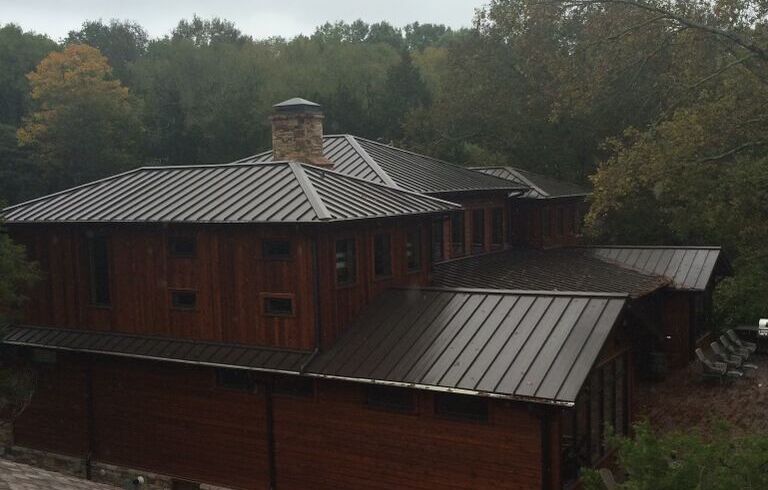
Several factors influence the choice of metal roofing gauge, including climate, building structure, and budget. For buildings located in regions prone to extreme weather, selecting a thicker gauge can enhance durability and reduce the need for frequent maintenance. Additionally, the structural characteristics of the building and the available budget play significant roles in determining the most suitable gauge.
Climate Considerations
The impact of climate on metal roofing performance cannot be overstated. Thicker panels, such as 22-gauge, offer superior protection against severe weather conditions, including hail, high winds, and heavy snowfall. In regions that experience extreme weather, selecting a thicker gauge can ensure the roof remains intact and requires less frequent maintenance.
On the other hand, thinner gauges like 26 or 29 may be more susceptible to damage in severe weather conditions, necessitating more frequent repairs and maintenance. Property owners in milder climates can opt for thinner panels to save on initial costs without compromising the roof’s performance.
Building Structure
The structure of the building also influences the choice of metal roofing gauge. For open-framed structures without structural sheathing, thicker metal roof panels, like 24 or 26 gauge, are recommended to provide adequate support and durability. Thicker panels, such as 22-gauge, however, may require additional structural support during installation due to their weight.
In contrast, lighter gauge panels may be more suitable for certain applications, providing a structurally sound solution without the need for extensive support. For example, storage buildings, warehouses, and barns can benefit from the use of lighter gauges, which are easier to install and more cost-effective.
Budget Constraints
Budget constraints are a significant factor when choosing a metal roofing gauge. Thicker gauges, such as 22 or 24, typically come with higher costs due to their increased material and installation requirements. For homeowners on a tighter budget, 26 or 29-gauge metal roofing provides a cost-effective solution that still offers adequate protection.
Metal Roofing with Metal Formers, Inc.
Choosing the right gauge for your metal roof involves balancing cost, durability, and environmental suitability. Ultimately, the choice of whether to go with a thicker or thinner metal gauge depends on factors such as climate, building structure, and budget constraints, ensuring the best outcome for your roofing investment.
At Metal Formers in Nashville, TN, we offer a variety of metal panels, trims, and flashings which can be made with any gauge to make your metal roof look outstanding. We can help you determine the best metal roof gauge for your next roofing project and ensure your clients get a customized, high-quality metal roof. You can find more information about the metal fabrication options we provide online, and view some of our residential roofing work.
If you have additional questions about Metal Formers and our products, feel free to connect with us online. For online orders, visit our order form page to download the order form for the products you need. Once completed, you will want to send your form to us via email at office@metalformersinc.com.
When it comes to protecting your roof from water damage to make your roof last, the team at Metal Formers are eager to assist you in any home improvement needs! We look forward to hearing from you.

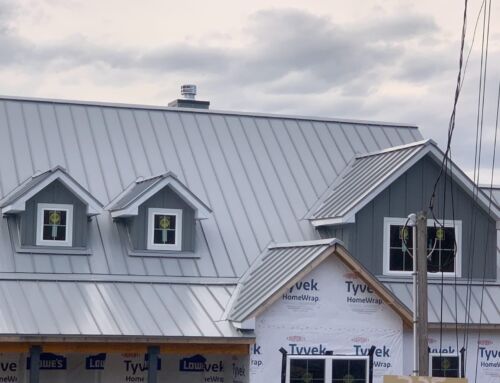
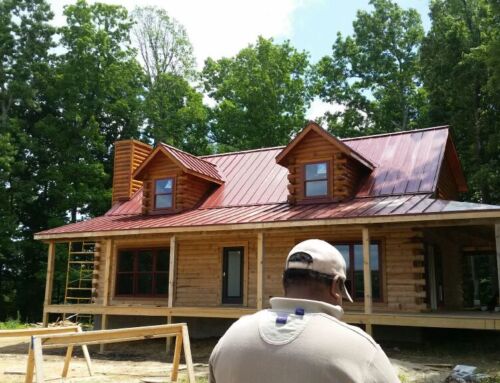
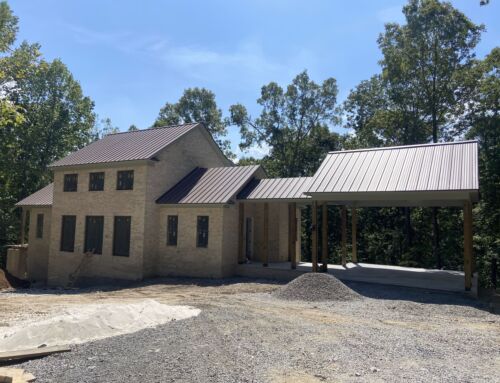
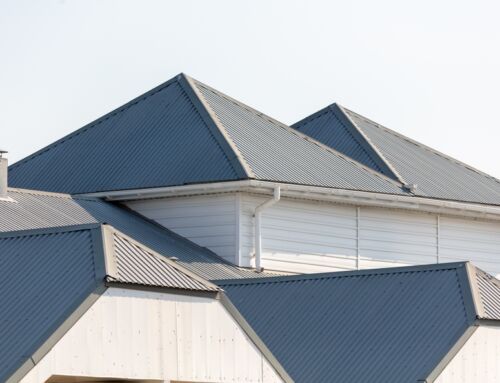
Leave A Comment